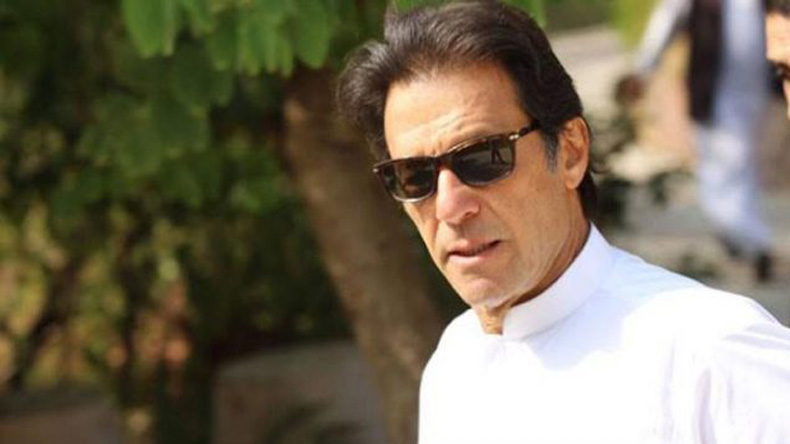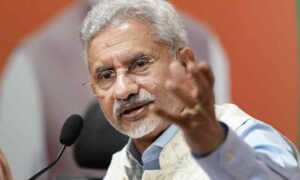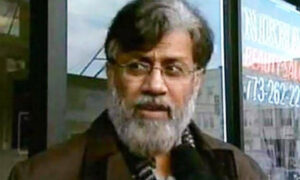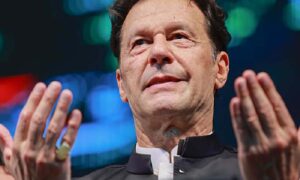
File Picture
Cricket in the sub continent is like religion and Imran Khan, the next prime minister of Pakistan, was surely a God for his countrymen, for all his on- the-field achievements. Imran with the new ball, created more excitement even in his die hard detractors, who studiously followed each and every move of the skipper, often called the ‘Lion of Lahore’.
At 39, he left his cricket, for the second and also the final time, on a high after winning the World Cup in 1992. He is the second all rounder- captain from the sub continent-the other is India’s Kapil Dev-to lift the trophy. Interestingly both achieved the feat away from their country. While Kapil lifted the cup in London in 1983 in the third edition, Imran did that in Melbourne (Australia), in the fifth.
After Imran won the 2018 elections, early this week, Kapil expressed his happiness and hoped that ties between the two countries would improve under the Pakistani cricket legend. Needless to say, like many of his fellow Indian players of his era, ‘the Haryana Hurricane” shares a good rapport with Imran. The two were, arguably the greatest all-rounders the sub- continent has produced, and the game has witnessed.
Imran has slogged it out for 22 years since forming his political outfit PTI (Tehreek-e-Insaf) in 1996. He knew that stepping into the minefield of Pakistan politics was not as easy as bouncing out a batsman or ducking under a quick lifting delivery, something he had done so well for two decades on the cricket grounds.
He weathered the storm, faced brickbats. His party drew a blank in the 1997 General Elections, in 2002 Imran won one seat. It boycotted the 2008 polls and in 2013, the PTI stunned all by winning 35 seats. The Nawaz Sharif led PML- N had bagged 166 seats, while Pakistan’s People’s Party (PPP) got 42. 2013 results brought the PTI to limelight and many believed it was the potential political outfit of the future, and Imran was viewed as the future PM. His rallies against government of the day saw huge crowds and indicated his rising popularity. But there were still many who doubted whether this popularity would translate into votes in the elections.
As the 2018 Elections drew nearer, Imran’s dream of a ‘Naya Pakistan’ with him at the helm got a ray of hope with former Army chief and President Pervez Musharraf slipping out of the reckoning. Musharraf, now in a self imposed exile in Dubai was named as a prime suspect in two assassinations – former Prime Minister Benazir Bhutto (2007) and Akbar Bugti. Though he had vowed to return to Pakistan, he hasn’t done that yet. With the anti-terrorism court in Rawalpindi convicting the former general turned- president as an absconder in the Bhutto assassination case, on August 31, 2017, Musharraf’s troubles were just getting bigger.
Bad times followed the other big name of Pak politics-Prime Minister Nawaz Sharif. He had antagonised the army with his soft- line approach towards India. Both the army and ISI-they generally decide the tenure of the civilian government- were clearly unhappy with Sharif. However, Sharif’s admission of the fact that Pakistani terrorists had carried out the dastardly attack on Mumbai (26/11 in 2008) was unbearable for both the army and ISI.
The Panama papers revelations hit PM Nawaz Sharif hard and on April 13, 2018, the Pakistan Supreme Court found him guilty, it banned him from contesting elections for life. The top court also barred Sharif from holding any public office for life. The Supreme Court ruling virtually ended his political ambitions. The final nail in the coffin was the conviction in a corruption case by an Islamabad court that sentenced Sharif and his daughter Maryam Nawaz to 10 years imprisonment.
All these helped Imran realise his dream which he has been chasing for over two decades. But, just before the polls, Imran faced a barrage of bouncers. His second wife, Reham Khan in a tell-all book led a blistering attack on him exposing his personal life. The book, caught Imran off guard, but like a seasoned cricketer, he kept his cool and composure and ducked the bouncers. The poll results indicate one thing: the voter’s paid little heed to Reham’s charges.
As expected, Imran’s victory has created apprehensions in India. Not only he has the backing of the army, and he is soft on some dreaded terror organizations, even Imran during the campaign had thrived on anti- India rhetoric. He had lashed out on former PM Sharif for being meek while India declared to the world of the surgical strikes by its army. In an interview to a channel he had remarked that India – Pakistan ties have been the worst under Prime Minister Narendra Modi, whom he viewed, a hard-liner.
In his speech after winning the polls, Imran was quite candid on the Kashmir issue. He termed the ‘Kashmir” imbroglio as the reason for the cold ties between the two neighbouring countries. Even he expressed his support for the Kashmiris saying they had been suffering for many years. He did not shy away from taking a dig at the Indian army and accused it of human rights violations.
While Imran raised the Kashmir issue, he also advocated for dialogue to resolve it. Imran believes trade ties between India and Pakistan would benefit both the countries and particularly the people. Terming blame games as meaningless, he maintains that both the countries should focus on peace.
Imran’s comment on Kashmir drew attention from all TV channels in India. Imran was all over on prime time news. Some experts termed him as a puppet of the Army and the ISI, a few also believed the elections were fixed and Imran was the face of the army. One channel ran the story: # Pak votes for Terror. It didn’t amuse Imran. In his address, he expressed his disappointment with the reports on him carried out by the Indian media and wondered why he was being portrayed like a ‘Bollywood villain’.
The first thing that India would want from Imran the Prime Minister is to end all terror activities from Pak soil targeted towards India. Only then the two nations could get into a peaceful bilateral dialogue. Quite rightly, India has maintained its stance in clear terms: terror and talks can’t go together.
Imran’s offer that if India takes one step, Pakistan will take two, is laudable, but lacks conviction. If he really means his words, then he must act against the non state actors will all sincerity. India’s Prime Minister Narendra Modi has reached out to Pakistan more than once, and has done everything possible for peace with Pakistan. His predecessors too had attempted for Indo-Pak peace. But in return, Pakistan has always stabbed India on its back. Imran must remember all that.
India is to keen to see how Imran will try to solve the Kulbhushan Jadhav issue or what measures will he take to hasten the tardy progress in the case of 26/11 attackers- notably its mastermind Hafiz Saeed. Can he stop his country from being a safe haven for most wanted criminals like Dawood Ibrahim? Only time will tell.
There is little doubt that given the fragile nature of Pakistan’s democracy and the behind the scene control by the ISI and the army the duo who actually determine the tenure of the civilian government in Pakistan, Imran may not be able to take any major decisions pertaining to India. The ‘real powers’ will make his life tough.
Imran too will be on the crossroads as far as the foreign policy of his country is concerned. The world is watching how he deals with China and US together. Pakistan’s relation with other countries will depend more or less on this.
Imran, the cricketer has a huge fan following in India, he is enormously popular here. It’s believed, he will try hard for the resumption of Indo- Pak cricketing relations. Unfortunately, cricket only can’t solve all his problems.


















